Concert Pianist.
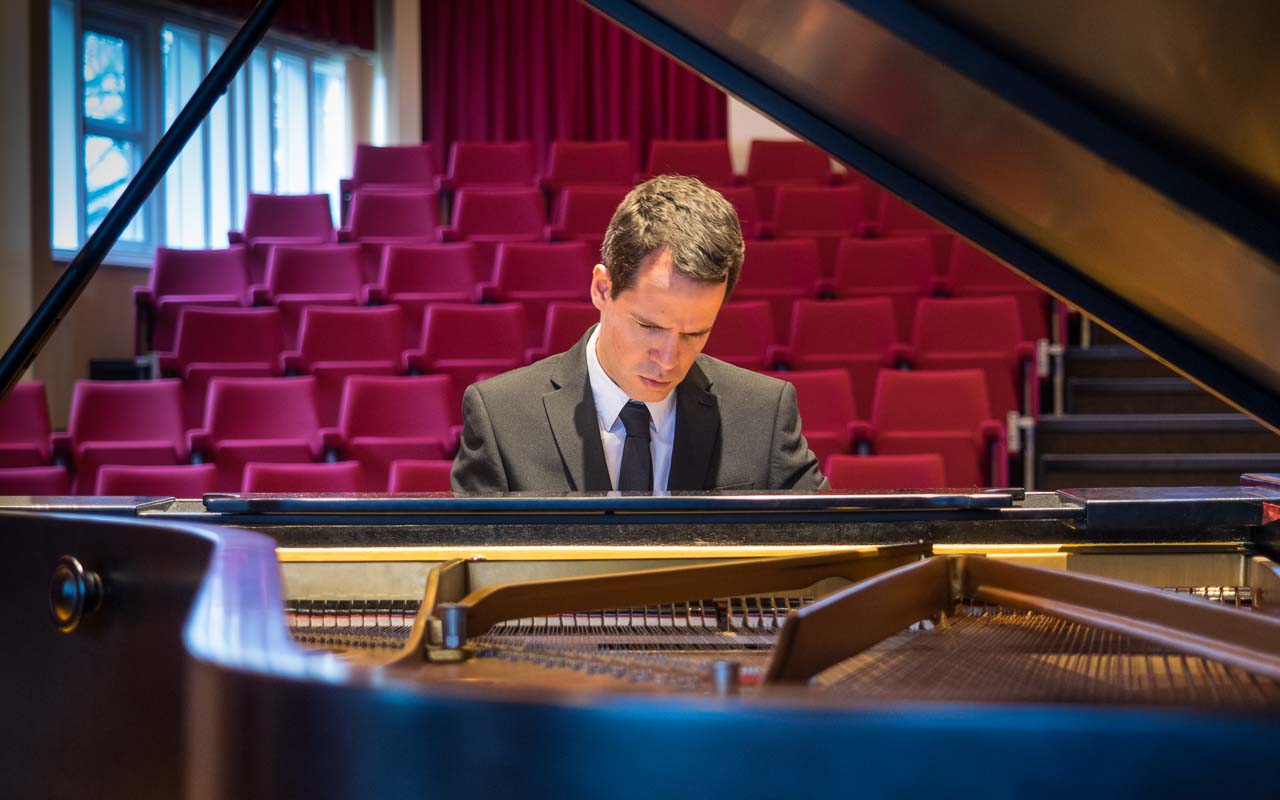
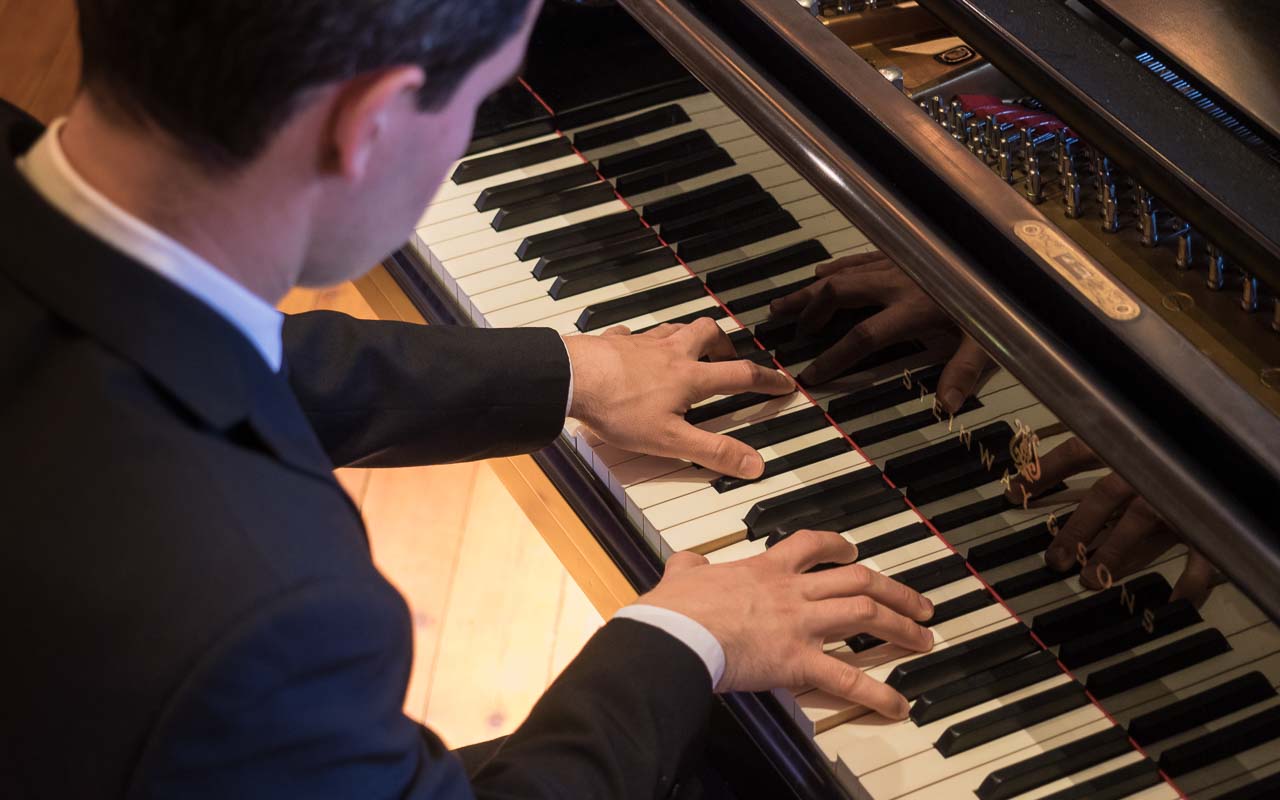
Venezuelan/Italian pianist Luis Parés enjoys an international career as a soloist and chamber musician having performed in numerous countries in Europe, Asia, North and South America. He has appeared at the most prestigious British venues, including the Queen Elizabeth Hall, Wigmore Hall, Cadogan Hall and Bridgewater Hall among many others. He has appeared with distinguished orchestras in Europe and South America and made live broadcasts for BBC Radio 3, RAI, Kol HaMusika Israel and Spanish radio.
Luis started his piano studies with Juan Antúnez and Igor Lavrov and later studied at the Royal College of Music in London with Gordon Fergus-Thompson and Andrew Ball and also held the Mills Williams Junior Fellowship at the RCM. He was a prize-winner at many national and international piano competitions, including First Prize at the XI Ricard Viñes International Piano Competition (Lerida, Spain) and Third Prize at the Maria Canals International Competition, duo sonatas category, in Barcelona. He was one of the winners of the 2006 Making Music Young Concert Artists Awards and he was a YCAT finalist in 2007.
Luis performs a wide range of concertos and solo works and is a keen chamber musician, with a particular interest in the string and piano repertoire. He has played with renowned musicians such as Ani Schnarch, Walter Delahunt, Pavel Vernikov, Atar Arad, Rudolf Koelman and Giovanni Guzzo.
Luis is a sought-after teacher and adjudicator and he is currently Head of Keyboard at Dulwich College in London. He is also an examiner for the Associated Board of the Royal Schools of Music and Executive Director of New Virtuosi International Violin Mastercourses, which take place annually in the UK and Italy.
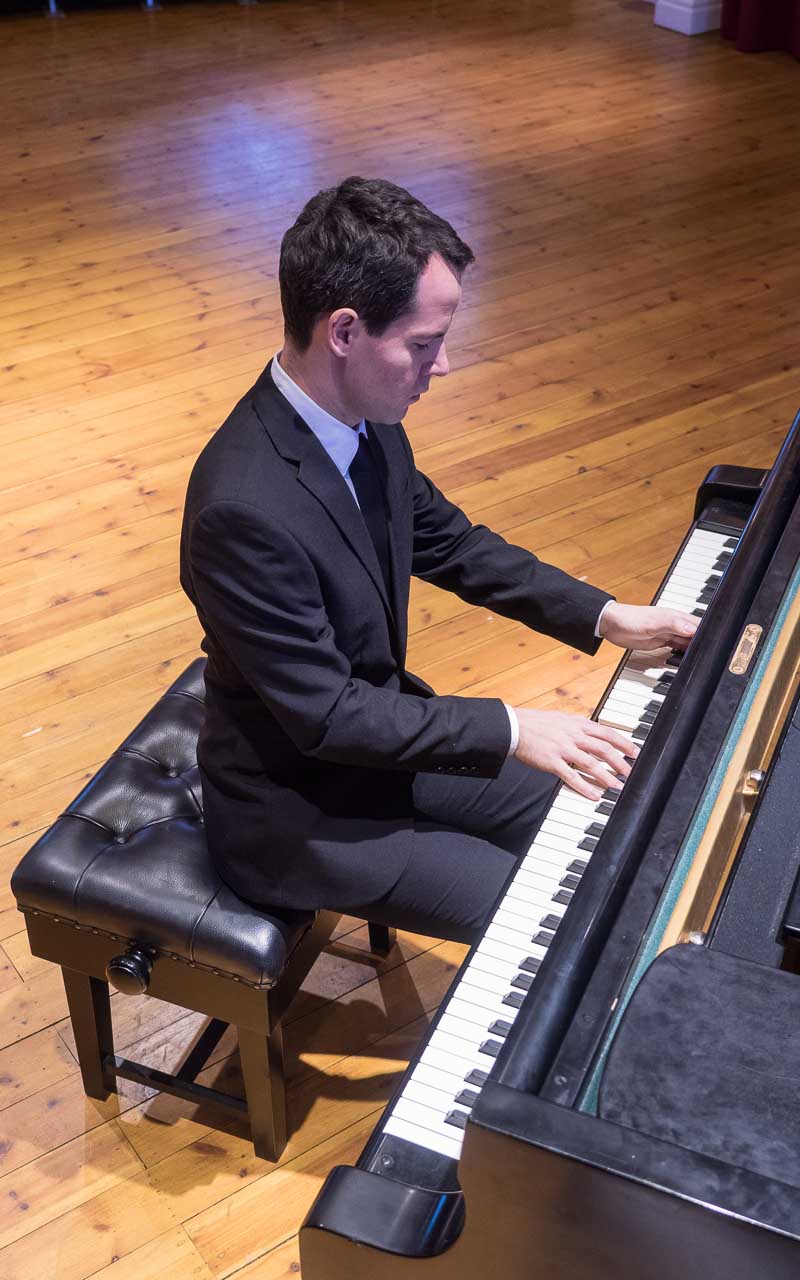
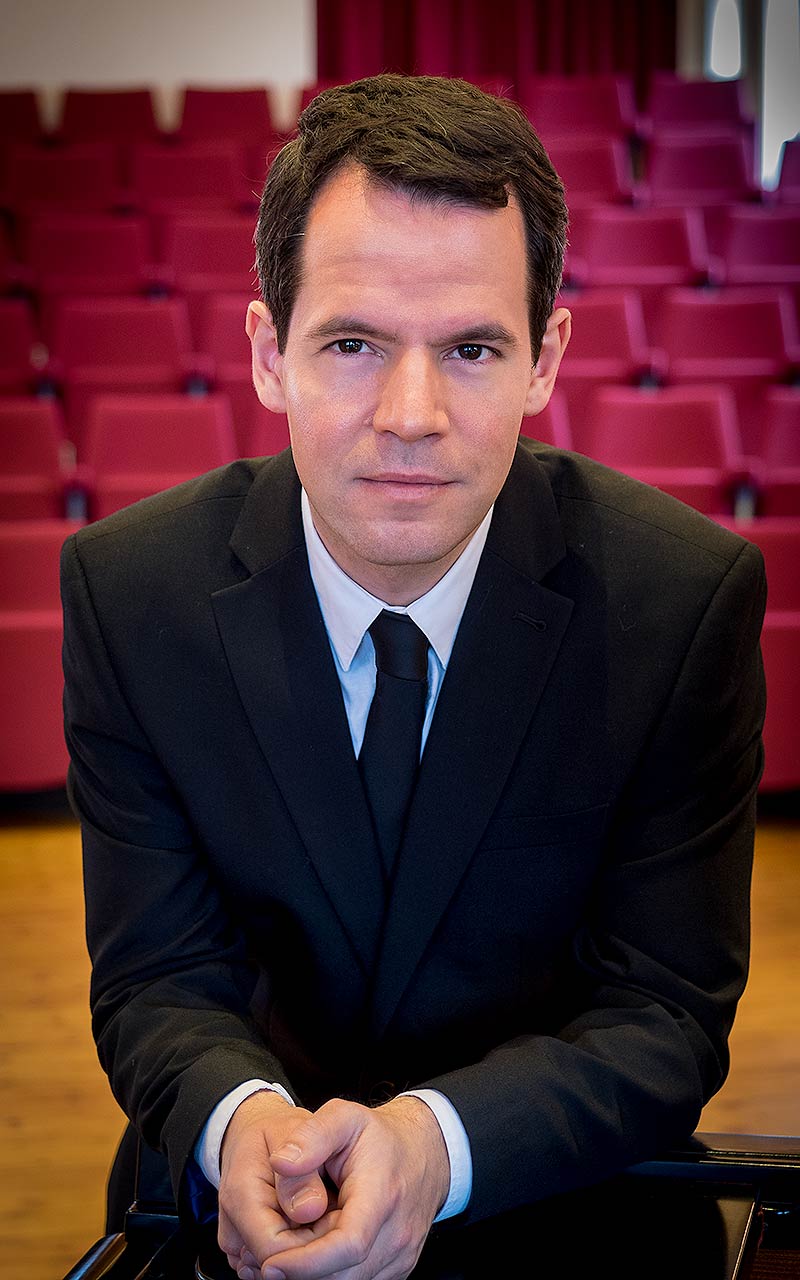
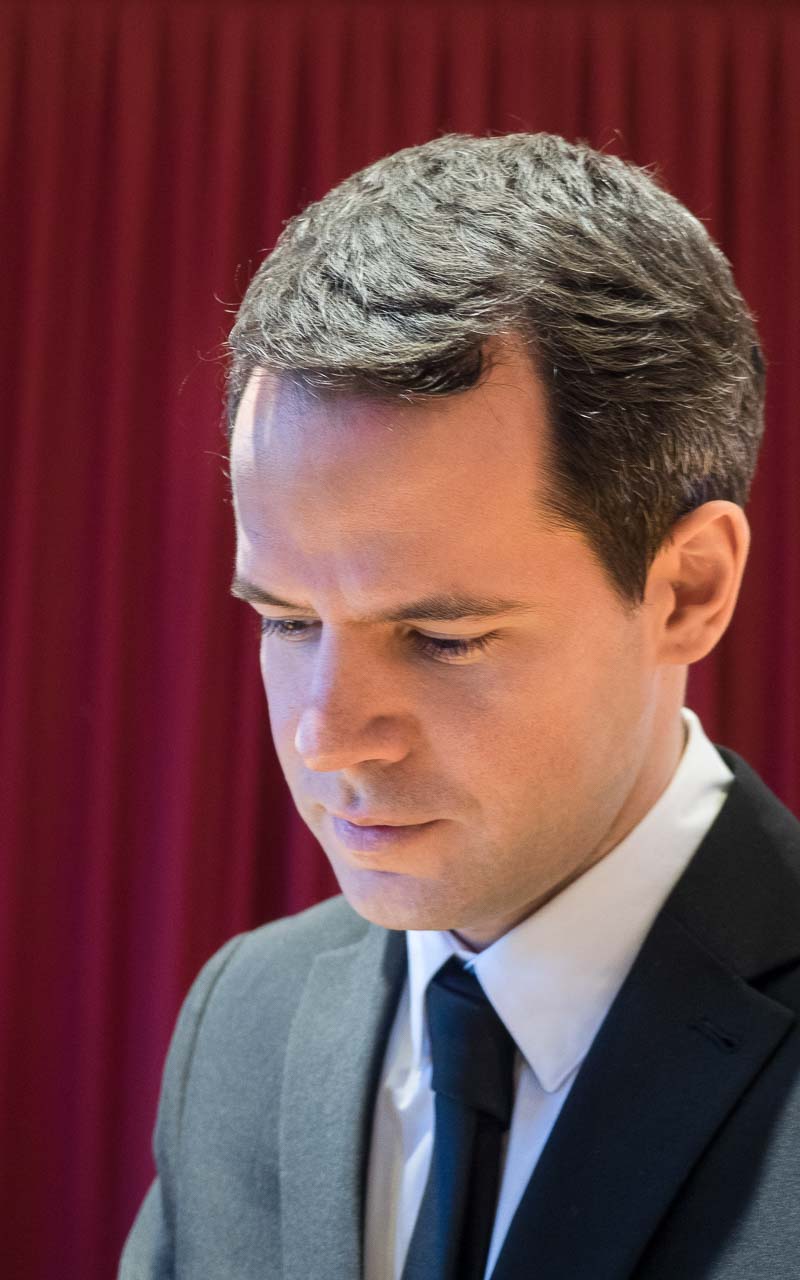
Live from Wigmore Hall.
Luis Parés, piano. Rachmaninov Paganini Rhapsody. Michael Young, conductor. Charities Philharmonia, St Johns Smith Square, London
Luis Parés, piano. Rachmaninov Paganini Rhapsody. Michael Young, conductor. Charities Philharmonia, St Johns Smith Square, London

"No doubt the main draw for many of the RCM Sinfonietta concert was the opportunity to hear the Venezuelan pianist Luis Parés. His account of Beethoven's First Concerto evinced an undoubted command of the keyboard, and his agility in the visceral passagework of the outer movements was matched by some exquisite playing in the Largo."

“Luis Parés lived up to his glowing reputation when he entranced the audience at Boston Orchestra's spring concert with his interpretation of Schumann's Piano Concerto in A Minor at the Sam Newsom Music Centre. […] the beautiful melodies stood out like rays of light. There have been many outstanding soloists in the orchestra's concerts over the years but the opinion of its seasoned players was that this performance stood comparison with the best.”

"Rachmaninov’s Rhapsody on a Theme of Paganini was the second item, in which the orchestra was joined by the Venezuelan-Italian pianist Luis Parés, a very gifted artist who gave a scintillating account of this wonderful score."

“Luis Parés started the concert with Alban Berg’s sonata. This poetic though complex sonata is written in a single movement and the audience became immediately aware of Pares' talent and dexterity. This was followed by a fantasy by Franz Schubert, based on the theme of the folk song 'The Wanderer'. The poetic and tuneful melody recurs throughout the piece, which was delivered with sensitivity and precision, rising to an awe-inspiring climax at the end. The second half of the concert was given over to Johannes Brahms' Piano Sonata No 3 in F minor, which is a technically challenging and energetic composition and which was competently delivered by Parés, demonstrating without doubt the outstanding ability of this talented player.”

“Few interpreters achieve that magical unfolding in which, without stopping being themselves, they become suitable means – or mediums – for the music they play. Venezuelan/Italian pianist Luis Parés demonstrated in his recital of Friday 4th at the Victor E. Clarke Hall of the University of Miami, that he possesses not only an impeccable technique but also complete versatility which enables him to move from classical to modern style, and even traditional music, with equal display of authenticity. Both smiling and stern, he showed the same control and commitment in Beethoven’s Sonata in A Op. 101 that opened the recital, and the throbbing Ginastera’s dances that closed it. Parés always plays with the soul in his fingers.”
